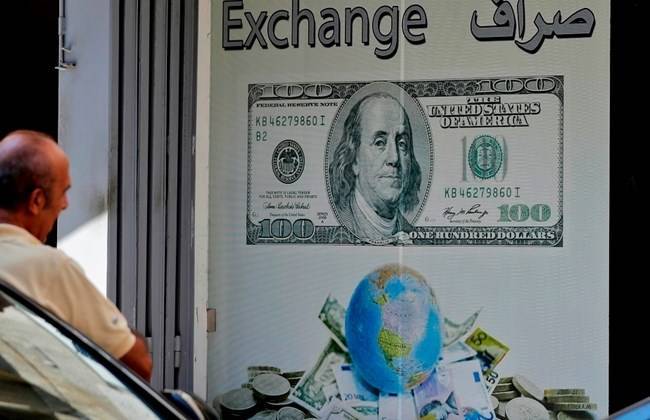
Exchangers appeared to look to capitalize on the fluctuating exchange rate following Hariri’s resignation on Thursday. (Credit: Joseph Eid/AFP)
BEIRUT — The lira was thrust into further volatility and uncertainty when the market closed on Thursday following Premier designate Saad Hariri’s resignation, rendering it vulnerable to exploitation by money changers anticipating a plunge in its value.
Five exchangers located in Beirut’s Hamra neighborhood told L’Orient Today that they were buying cash dollars from customers at a rate of LL19,500. None of these exchangers were selling dollars, claiming that they had run out of them. They also declined to provide a selling rate.
Two other exchangers, who were also buying dollars at the LL19,500 rate, told L’Orient Today that the sell rate was set at LL21,000; they were also not selling their stock.
However, one of them added, “I’m not going to lie — I have dollars, but I won’t be selling any today,” without providing any further details.
The lira’s market value fluctuates from day to day — and sometimes within the same day — depending on supply and demand for the dollar and developments in the country. For example, the lira dropped from LL7,850 to LL8,300 the day after former Prime Minister-designate Mustapha Adib announced his resignation on Sept. 26.
Earlier on Thursday, the lira had already reached a new record low of LL19,900 to the dollar amid uncertainty over the government formation process, and as Banque du Liban’s foreign currency reserves continue to shrink.
Following Hariri’s announcement that he would step down after nearly nine months of failing to agree on the makeup of a cabinet with President Michel Aoun, the exchangers appeared to be capitalizing on the national currency’s volatility to maximize their profit margin. In other words, they were buying dollars at a low rate of LL19,500 — even lower than the rate set just hours earlier — and holding off on selling them until Friday morning, when the market looks set to open with a buy rate as high as LL21,000 or more.
In this way, money changers can exploit the country’s political malaise to their benefit, increasing their profits by almost 8 percent, or approximately LL150,000 for each $100.
“It is normal … that exchangers who hold dollars should wait until tomorrow to see what the market prices are,” a major money changer told L’Orient Today, speaking on condition of anonymity.
As of the end of Thursday, online applications had set the dollar buy and sell rates at LL20,500 and LL21,000, respectively. Residents who search for dollar buyers on online chat rooms through platforms such as Telegram and WhatsApp groups were being offered buy rates of LL20,900–LL21,900.
Meanwhile, the currency’s volatility and soaring inflation continue to have profound implications for residents with limited or no access to dollars. A recent UNICEF survey estimated that more than three-quarters of the households in Lebanon may not have sufficient access to food or money to buy food. The results of a survey of 1,800 women and girls, published just yesterday, found that more than three-quarters of the respondents are having difficulty accessing menstrual products due to a steep rise in prices.